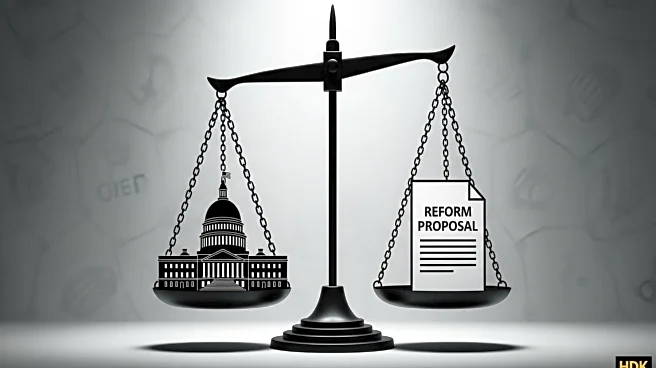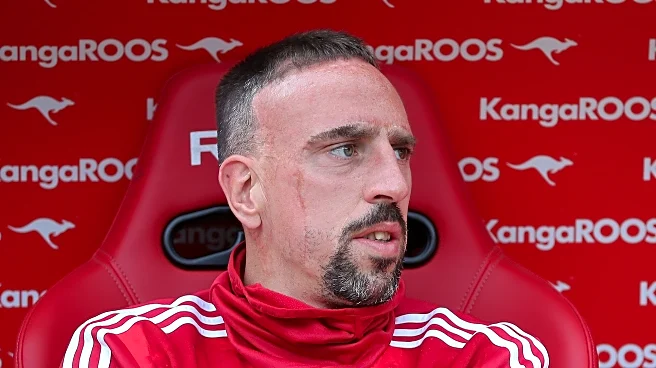What is the story about?
What's Happening?
The U.S. Congress is once again embroiled in a government shutdown, a recurring issue that has become a hallmark of political dysfunction in Washington, D.C. The shutdowns, which disrupt federal operations and cost billions, stem from the inability to pass funding bills. This practice, unique to the U.S., has been criticized for its negative impact on government efficiency and public perception. The concept of shutdowns originated from a 1980 reinterpretation of an 1880s law. Recent proposals, such as the Eliminate Shutdowns Act by Sen. Ron Johnson, aim to prevent shutdowns by maintaining government funding at current levels in the absence of new bills. However, these proposals face opposition, with some viewing them as a means to control spending. Bipartisan efforts, like those by Sen. Maggie Hassan and Sen. James Lankford, have also been introduced but have not advanced.
Why It's Important?
The frequent government shutdowns highlight significant issues within the U.S. political system, particularly the challenges of achieving bipartisan consensus. These shutdowns affect federal workers, disrupt services, and undermine public confidence in government. The political leverage gained by minority parties during shutdowns complicates efforts to find lasting solutions. The ongoing debate over funding, particularly concerning healthcare subsidies and immigration, reflects deeper partisan divides. The shutdowns also have economic implications, delaying critical infrastructure projects and affecting local economies. The repeated nature of these shutdowns suggests a need for systemic reform to ensure government stability and efficiency.
What's Next?
As the shutdown continues, both parties are refining their strategies and talking points. Republicans are focusing on accusations against Democrats regarding healthcare subsidies for undocumented immigrants, while Democrats emphasize the need to protect Obamacare subsidies. The shutdown is also being used to pressure Democratic leaders by delaying significant infrastructure funding for New York. The potential firing of federal workers, as opposed to furloughs, is another contentious issue. Moving forward, the resolution of the shutdown will require negotiations and potential compromises on key issues like healthcare and immigration. The outcome may influence future legislative strategies and the political landscape.
Beyond the Headlines
The recurring shutdowns raise questions about the effectiveness of the U.S. political system and the balance of power between parties. The use of shutdowns as a political tool underscores the challenges of governance in a polarized environment. The ethical implications of using public services and workers as leverage in political negotiations are significant. Long-term, these shutdowns could lead to calls for reform in how government funding is managed, potentially altering the legislative process and the role of minority parties in shaping policy.















